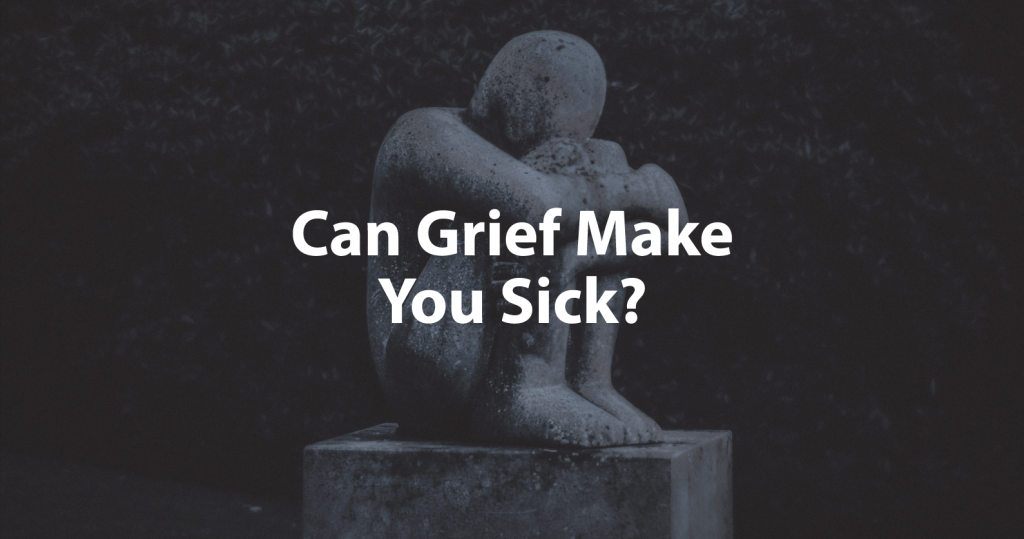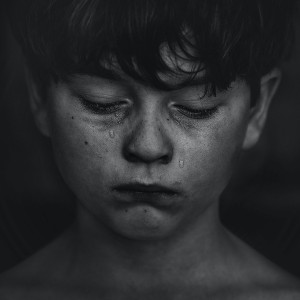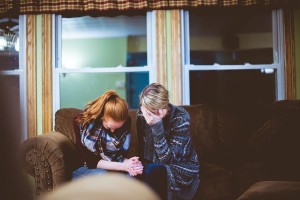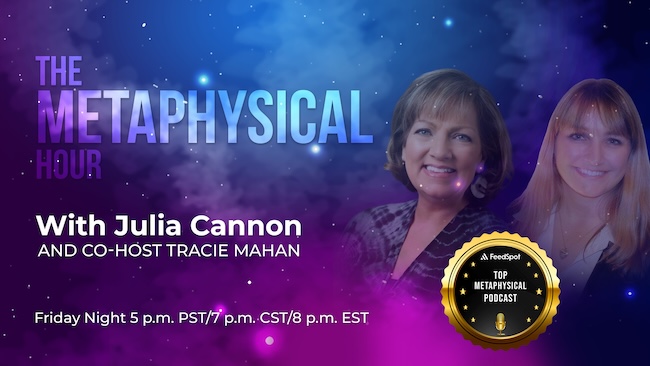
Everyone feels depressed from time to time. Sometimes it can be for no apparent reason, while other times it can be caused by something as profound as the loss of a loved one. Occasionally those sad feelings can last for days or even weeks. Clinical depression is when these feelings don’t go away and they start to interfere with your daily life. It is not a ‘made up’ disease.
Depression is a real illness that can develop physical symptoms at any age. It is one of the most common mental health problems facing people in the world today. Depression makes you feel lost, sad, helpless, and hopeless. It gets in the way of your daily life and your relationships. It will inhibit your ability to think and act. But, with help, you can feel better again.
 Can grief make you sick or is it all in the mind?
Can grief make you sick or is it all in the mind?
“Studies suggest that depression often precedes a heart attack in up to 50 percent of cases, and is the single best predictor of cardiovascular events over the next year,” says Barry Franklin, Ph.D., director of the cardiac rehabilitation and exercise lab at William Beaumont Hospital in Royal Oak, Michigan. “In one study of about 4,500 elderly people who did not have heart disease, the risk of developing it and dying, as a result, was increased by 40 percent and 60 percent, respectively, for those who became depressed, compared to those who did not.”
Depression can be equally deadly after a patient has had a heart attack. “According to two landmark studies conducted in the last decade, depressed individuals are three to five more times likely to die in the first year following a myocardial infarction (MI) compared to those who aren’t depressed,” says Dr. Franklin.
 The big question is why. “Clinically depressed people often have undiagnosed anxiety, don’t take their medications properly or exercise regularly, and tend toward obesity because they eat comfort foods high in salt, sugar, and fat,” notes cardiologist Erica C. Jones, MD, associate professor of clinical medicine at the Weill Medical College of Cornell University.
The big question is why. “Clinically depressed people often have undiagnosed anxiety, don’t take their medications properly or exercise regularly, and tend toward obesity because they eat comfort foods high in salt, sugar, and fat,” notes cardiologist Erica C. Jones, MD, associate professor of clinical medicine at the Weill Medical College of Cornell University.
“As a result, depression raises their risk for CHD, hinders recovery after a heart attack, and increases the risk for recurrent cardiac events. Factor in women’s increased vulnerability to depression—according to the American Psychiatric Association, they have double the risk of major depression compared to men —and it’s hardly surprising that heart disease kills more women than any other disease.”
What does grief do to the body & immune system?
The physical symptoms of grief are far-reaching. It can harm the entire body if left unchecked. Brain chemicals affect your body as well as your mood. So depression may do more than just make you feel low. You may also get physically ill. Here are some of the effects depression can have on the body:
1. Grief can affect your sleep
It can cause you to have trouble sleeping, or you may sleep for unusually long periods affecting your entire well-being. This is a problem, especially for older adults.
 2. Grief can affect your physical health
2. Grief can affect your physical health
Some people experience drastic changes to their diet, causing digestive problems. Some have a loss of appetite, causing drastic weight loss, while others eat in excess as a coping mechanism, and turn experience weight gain.
3. Grief can manifest physical pain
It can cause shortness of breath, migraines, nausea, chest pain and aches and pains throughout the body, or other health issues. The physical pain it can cause is why grief is often considered a health condition by many healthcare providers.
What does grief do to your brain, mental state & emotions?
1. Grief can affect mental health.
It can make mental tasks such as remembering, concentrating or making decisions much more difficult. It can also give you a sense of feeling lost, as you endure this pain alone or in a small group.
2. Grief can affect your behavior.
It can make you feel anxious, nervous, and jumpy. It can raise your blood pressure, and can also cause paranoia, panic attacks, and PTSD by effecting our stress hormones. For some people, it can even cause suicidal thoughts.
3. Grief can exhaust you.
It can drain your body of energy and produce a feeling of ‘heaviness’ that’s hard to shake. It can make you unmotivated to accomplish even the most basic tasks in your daily life. Especially when it comes to heartbreak.
How long do the symptoms of grief last after losing a loved one?
 There is no set timetable for healing the effects of grief after losing a loved one. The grieving process is different for everyone. You may start to feel better in a matter of days, or it can stretch from 4 to 8 weeks. The entire grieving process can even last 6 months to many years. You may start to feel better in small ways, and not realize that its gradually getting better.
There is no set timetable for healing the effects of grief after losing a loved one. The grieving process is different for everyone. You may start to feel better in a matter of days, or it can stretch from 4 to 8 weeks. The entire grieving process can even last 6 months to many years. You may start to feel better in small ways, and not realize that its gradually getting better.
You will notice you’re feeling better when you start to get up a little earlier in the morning. Or maybe one day you’ll realize that you have a lot more energy. This is an important time when you need to focus on self-care. you’ll begin to reorganize your life around your loss or without your loved one. During this time, it may feel like you go through a series of ups and downs. You may feel better one day, but worse the next. This is normal.
Ways to manage the symptoms of grieving
Everyone is different, and there is no ‘right’ way to grieve. Give yourself time to experience your loss in your way. At the same time, remember to take care of yourself.
- Face your loss. Never bury your emotions. You need to allow yourself to cry, or to get angry, Expressing one’s emotions is a perfectly natural way of coping with them.
- Focus on self-care. Look after your physical health. Be sure to get enough sleep, consume a well-balanced diet, and make sure to exercise regularly.
- Express your emotions. Discuss how you’re feeling with a family member or healthcare provider. Find a creative way to let your emotions out. This can mean embracing art, music, writing, or some other creative form of expression.
- Maintain a daily schedule. Get back into your normal daily routine as soon as possible, and keep up with your daily tasks so you don’t get overwhelmed.
- Avoid any form of substance abuse. Alcohol is a depressant that can affect your mood, so it could make you feel even sadder.
- Avoid making major decisions. It takes time to adjust to a loss and get back to a normal state of mind. Making an impulsive decision as you’re grieving could add more stress at an already difficult time. Try to wait a year before making a big change, like moving or changing jobs.
- Give yourself a break. Take breaks from grieving by participating in activities you enjoy. It’s okay to not feel sad all the time. It’s good for you to laugh.
- Ask for help if you need it. You don’t have to struggle. Seek out friends, family, clergy, a counselor or therapist, or support groups. If your symptoms aren’t getting better or you feel like you need extra help, talk to your family doctor.
- Try a past life regression session. A past life regression may give you new answers about yourself and the grief you’re experiencing.
Grief can make you sick, but you are never alone.
 Managing the physical symptoms of grief can be difficult, but you are never alone! There are always people willing to assist you, or your family members as you work your way through your grieving process.
Managing the physical symptoms of grief can be difficult, but you are never alone! There are always people willing to assist you, or your family members as you work your way through your grieving process.
Here are a few examples of organizations ready to help:
SAMHSA’s National Helpline is a free, confidential, 24/7, 365-day-a-year treatment referral and information service (in English and Spanish) for individuals and families facing mental and/or substance use disorders.
https://www.samhsa.gov/find-help/national-helpline
Crisis Response Network is a non-profit organization dedicated to helping individuals by Inspiring Hope and empowering transformation from HOPE to HEALTH through a continuum of crisis, referral, and data services.
https://www.crisisnetwork.org/find-help/
American Society of Clinical Oncology: Understanding Grief and Loss
U.S. National Library of Medicine, Medline Plus: Grief
Additional Resource Recommendations
https://www.cartercenter.org/resources/pdfs/whanov05.pdf
https://familydoctor.org/grieving-facing-illness-death-and-other-losses/
https://www.nextavenue.org/how-deal-natural-process-grieving-after-loss/





Leave a Reply
You must be logged in to post a comment.